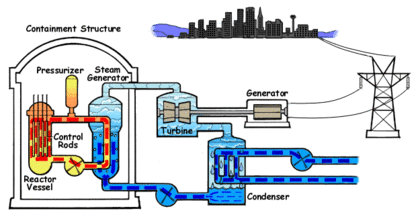But in that respect Andy - the judgement - the nuclear industry has itself to blame. I recall - long before any of the three incidents - being told "nuclear power is inherently safe - it cannot possibly cause a radiation leak or explosion - it just can't happen". That was the line that was taken back then - it can't happen. Right up to the time when it happened.
I'm not "anti nuke" or "anti renewable" or "anti coal".
I personally think there is far too much bias in all the arguments. There are risks in all forms of electricity generation. They are not all directly comparable. But they are all very real - is the long term storage of nuclear waste more dangerous than the CO2 from coal which only has a 50 year atmospheric window? Is the risk of environmental damage from a dam break greater than the risk of a radiation leak? Do we actually care about energy independence? If fast-breeder plutonium producing reactors are no problem - why all the fuss over Iran having them?
We will almost certainly need to use all the means we can in coming years. For me, the whole thing is just woefully inefficient. Venting steam (heat)....really? Really...we produce electricity and have waste heat and trnasport electricity to...wait for it....create heat. Its crushingly inefficient and only happens that way because of the way we do things. CHP is far more logical.
Coming down and saying one form only....any form.... is the way forward is going to leave people sitting in the dark.
The sooner I get that wind turbine the better
I'm not "anti nuke" or "anti renewable" or "anti coal".
I personally think there is far too much bias in all the arguments. There are risks in all forms of electricity generation. They are not all directly comparable. But they are all very real - is the long term storage of nuclear waste more dangerous than the CO2 from coal which only has a 50 year atmospheric window? Is the risk of environmental damage from a dam break greater than the risk of a radiation leak? Do we actually care about energy independence? If fast-breeder plutonium producing reactors are no problem - why all the fuss over Iran having them?
We will almost certainly need to use all the means we can in coming years. For me, the whole thing is just woefully inefficient. Venting steam (heat)....really? Really...we produce electricity and have waste heat and trnasport electricity to...wait for it....create heat. Its crushingly inefficient and only happens that way because of the way we do things. CHP is far more logical.
Coming down and saying one form only....any form.... is the way forward is going to leave people sitting in the dark.
The sooner I get that wind turbine the better



